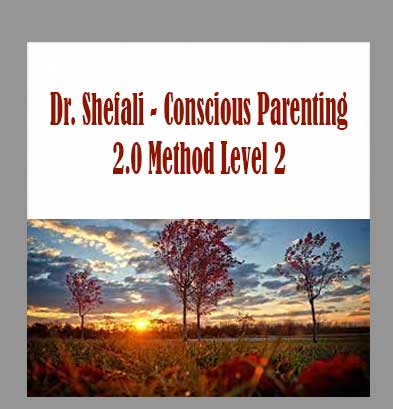Alan Godwin – PESI – 2-Day Conflict Resolution Course for Mental Health Professionals
Description
Alan Godwin – PESI – 2-Day Conflict Resolution Course for Mental Health Professionals download, Alan Godwin – PESI – 2-Day Conflict Resolution Course for Mental Health Professionals review, Alan Godwin – PESI – 2-Day Conflict Resolution Course for Mental Health Professionals free
Alan Godwin – PESI – 2-Day Conflict Resolution Course for Mental Health Professionals
Clients walk into your office every day with different complaints and yet there is a commonality that is easily missed – the context in which their struggles often develop is conflict – poorly-handled, unresolved conflict.
Conflict is unavoidable, whether it’s in a marriage, family, work, or friendship context though it’s not always obvious that poor conflict management skills are at the heart of client’s problems. Their lack of conflict management skills can lead to struggles with depression, anxiety, and a host of other issues that bring them to your office. These problems become even more significant if the client has a conflict with an emotional manipulator who has neither the ability nor desire to resolve problems.
Many mental health clinicians are not skilled at conflict resolution and it is an area often neglected in many training programs. Alternative Dispute Resolution expert, Dr. Alan Godwin, combines decades of clinical practice and the latest behavioral research to offer you comprehensive solutions and an easy-to-understand conflict resolution system you will be ready to use the next day to engage and empower your clients.
Don’t miss out on this unique chance to expand your clinical skill set, your clients are counting on you.
Speaker
Alan Godwin, PsyD
Objectives
- Identify four categories of conflicts clients experience in relation to assessment and treatment planning.
- Describe the operation of the conflict trap and its different versions as it relates to treatment outcomes.
- Articulate the negative impact of poorly-handled conflict on clients’ mental health.
- Distinguish the cognitive skills necessary to implement the reasoning process and put to practical use in-session.
- Demonstrate the specific steps involved in solving conflict problems to improve client’s level of functioning.
- Explore the therapist’s role to facilitate the client’s problem-solving process in session.
- Articulate the reasoning deficiencies that disable a client from participating in the conflict-resolution process and its clinical implications.
- Describe the manipulator’s methods of exacerbating conflict for purposes of client psychoeducation.
- Assess the psychological impact of conflict with an emotional manipulator to inform clinical treatment interventions.
- Articulate what a client must do in session to move from conflict to resolution.
- Evaluate and restructure the client’s interpersonal interactions as an approach to manage the client’s relationship with an emotional manipulator.
- Describe the objectives for healthy conflict with difficult clients as it relates to case conceptualization.
Outline
Step by Step Clinical Guide to Resolving Conflicts
- Categorize conflict to determine treatment approach
- Preference problems
- Perception issues
- Difficulties with process
- Feeling pressure
- Assess operation of the conflict trap
- Heightened altercation
- Inarticulate dispute
- Combination disagreement
- Psychological consequences of poorly-handled conflict
- Recurrent complications
- Diminished attachment
- Alienation from others
- Emotional distress
- Proven strategies for healthy conflict management and resolution
- Teach clients to defuse argument provocation
- Interventions to manage fight or flight reactions
- Strategies to modify immature patterns of behavior
- Assess ability to resolve conflicts
- Teach clients 5 steps of the problem-solving process
- Narrow
- Validate
- Select
- Specify
- Adjust
- Implement resolution of conflict in clinical practice
- Focus on process, not issues
- Target one issue at a time
- Achieve understanding
- Compromise and define the solution
- Adjust if the stated solution doesn’t work as intended
- Conflict management techniques for improved mental health
- Exercises to increase cognitive skills
- Interventions to foster secure attachment
- Enhance neural connections
- Build emotional harmony with emotional intelligence
- Case Study: The Conflict Resolution Process
Advanced Conflict Resolution Skills for Difficult Clients
- Assess cognitive impairments in clients with limited reasoning abilities
- Wrong vs right
- Strengths vs weaknesses
- Truth vs blame
- Consideration vs selfishness
- Reliability vs inconsistency
- Identify implicit roles clients play and select appropriate conflict resolution strategy
- Master – “I’m in control”
- Martyr – “I’m the victim”
- Messiah – “I’m the hero”
- Mute – “You should know my role”
- Mirror – “It’s not me, it’s you”
- Strategies to end an unhealthy circular process of conflict
- Prevent vulnerabilities from being exploited
- Interventions to manage reactions
- Teach clients to reason, not antagonize
- Psychological impact of conflict with a manipulator
- Physiological response
- Disorientation from reality
- Emotional debilitation
- Strategies to re-structure interpersonal interactions
- Redefine depth of a relationship
- Assess value and limitations
- Evaluate growth opportunities
- Interventions to move from conflict to resolution
- Develop a plan
- Respond vs. react
- Teach clients to set boundaries
- Assess level of functioning in response to healthy conflict resolution
- Intrinsic motivation to change
- Limited potential for growth
- Dangerous behavior
- Determine clinical treatment goals
- Accurately assess patterns of behavior
- Reduce emotional distress
- Respond instead of react
- Create realistic expectations
- Set healthy boundaries
- Establish support systems
- Accept relational limitations
- Objectives for healthy conflict with these clients
- Restrained problems
- Empowerment
- Redefine communication expectations
- Improved mental health
- Case Study: The Drama Management Process
Target Audience
- Psychologists
- Counselors
- Social Workers
- Marriage and Family Therapists
- Alcoholism and Drug Abuse Counselors
- Case Managers
- Pastoral Counselors
- School Psychologists
Frequently Asked Questions:
- Innovative Business Model:
- Embrace the reality of a genuine business! Our approach involves forming a group buy, where we collectively share the costs among members. Using these funds, we purchase sought-after courses from sale pages and make them accessible to individuals facing financial constraints. Despite potential reservations from the authors, our customers appreciate the affordability and accessibility we provide.
- The Legal Landscape: Yes and No:
- The legality of our operations falls into a gray area. While we lack explicit approval from the course authors for resale, there’s a technicality at play. When procuring the course, the author didn’t specify any restrictions on resale. This legal nuance presents both an opportunity for us and a boon for those seeking budget-friendly access.
- Quality Assurance: Unveiling the Real Deal:
- Delving into the heart of the matter – quality. Acquiring the course directly from the sale page ensures that all documents and materials are identical to those obtained through conventional means. However, our differentiator lies in going beyond personal study; we take an extra step by reselling. It’s important to note that we are not the official course providers, meaning certain premium services aren’t included in our package:
- No coaching calls or scheduled sessions with the author.
- No access to the author’s private Facebook group or web portal.
- No entry to the author’s exclusive membership forum.
- No direct email support from the author or their team.
We operate independently, aiming to bridge the affordability gap without the additional services offered by official course channels. Your understanding of our unique approach is greatly appreciated.
- Delving into the heart of the matter – quality. Acquiring the course directly from the sale page ensures that all documents and materials are identical to those obtained through conventional means. However, our differentiator lies in going beyond personal study; we take an extra step by reselling. It’s important to note that we are not the official course providers, meaning certain premium services aren’t included in our package:
Refund is acceptable:
- Firstly, item is not as explained
- Secondly, Item do not work the way it should.
- Thirdly, and most importantly, support extension can not be used.
Thank you for choosing us! We’re so happy that you feel comfortable enough with us to forward your business here.








Reviews
There are no reviews yet.